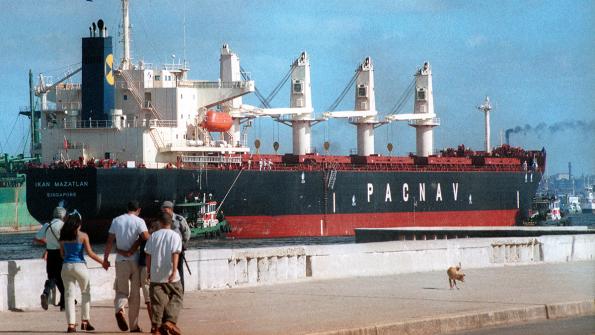
It might be easy to get caught up in the euphoria most farmers must feel over Donald Trump’s election win. Surveys showed 80 to 90 percent supported Mr. Trump in the months leading up to Nov. 8.
But there are some storm clouds rising as the president-elect begins to select cabinet members and implement the many promises he made during what most agree was a campaign that was too long by half.
Of major interest to farmers in the South will be the Trump administration’s Cuba policy. Will one analyst’s prediction the “legislative pathway for Cuba died at 3 a.m.” when Mr. Trump declared victory Nov. 9 come true? Or were the statements disparaging new relations with Cuba campaign rhetoric?
Related
Conservation payments, ARC/PLC signup, and Cuba
Cuba trade, TPP, rice and legislature expectations
“The Trump administration will increase conditionality upon the United States-Republic of Cuba relationship, specifically relating to commercial engagement,” said John Kavulich, president of the U.S.-Cuba Trade and Economic Council. “Its focus will be on Feb. 24, 2018, when President Raul Castro retires and ‘Post-Castro Cuba’ begins."
Noting the new president has changed position on Cuba several times, Kavulich said "His most recent statements indicate he may not immediately reverse commercial, economic and political engagement, but may increase conditionality as a cost of expansion."
Then there’s the Trans-Pacific Partnership, which farm organizations have been scrambling to get Congress to pass during its lame-duck session. The day before the election American Farm Bureau President Zippy Duvall urged farmers to contact their representatives and demand a vote on TPP.
Farm Bureau economists estimate the agreement could put $4.4 billion in farmers’ pockets if approved by Congress and signed by the president. That's more than the Agricultural Risk Coverage or Price Loss Coverage programs will provide for the 2015 crops.
The third – the future of the Environmental Protection Agency – might seem to be of marginal concern for farmers. But, as representatives of CropLife America, the organization that represents pesticide manufacturers, have said, U.S. agriculture needs an effective EPA to assure the public its food supply is safe.
To express its anger over EPA’s Clean Water Act or Waters of the U.S. regulations, Congress cut the agency’s funding so that its Office of Pesticide Program now has half the employees it had. The result: registration of new pesticides now takes three to four times as long.
EPA was created during the Nixon years because that administration realized the need for a legitimate food safety regulatory process. If you think the environmental activists are difficult to deal with now just think about what will happen if President Trump tries to dismantle EPA.
For more information on the transition, visit https://www.greatagain.gov/
About the Author(s)
You May Also Like






